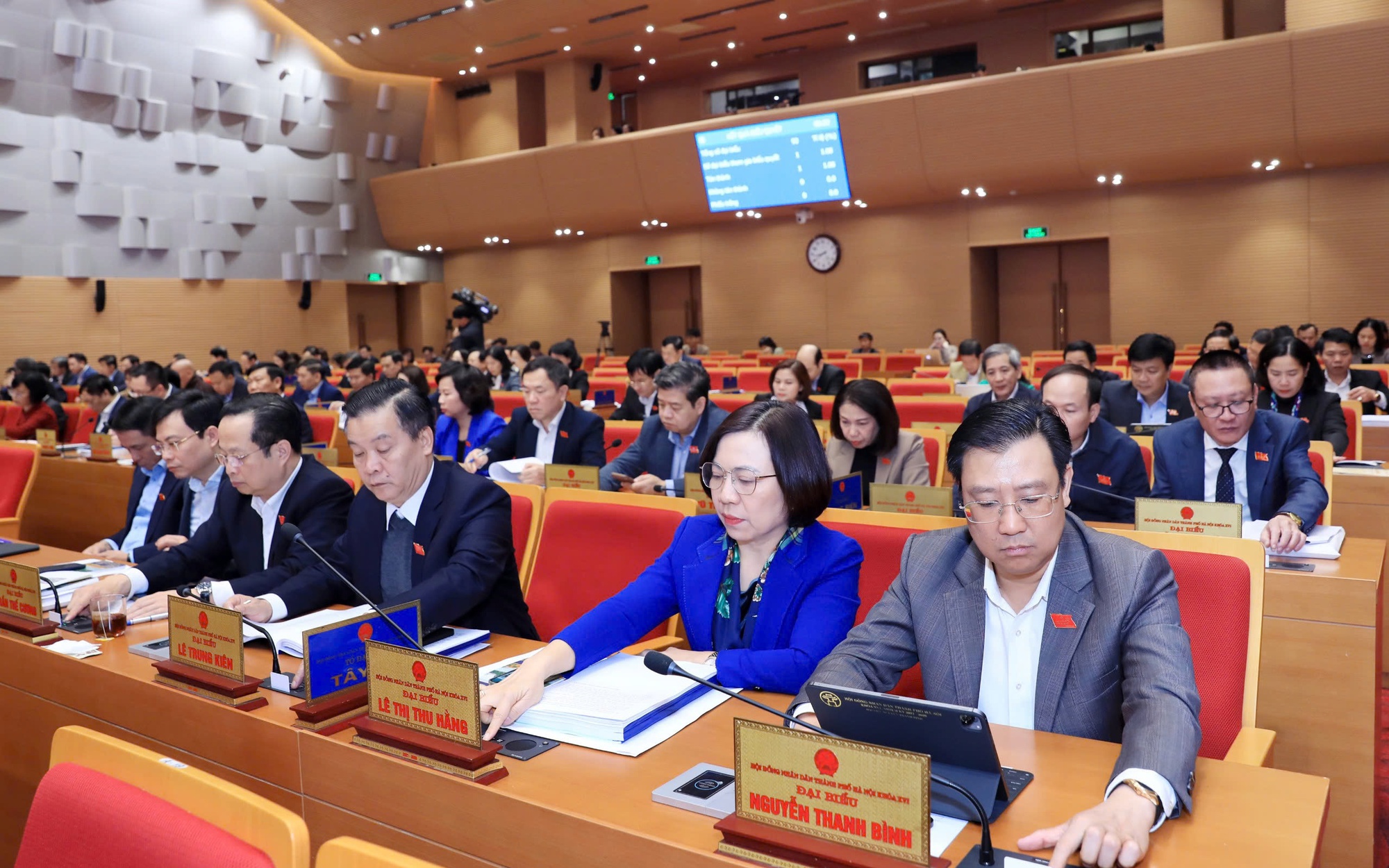During the 20th session of the 16th Hanoi People's Council on December 10, the delegates voted unanimously to approve the Resolution on the list of land withdrawal projects for 2025 and the list of projects converting rice paddy land for the same year within the city.

Overview of the event.
Accordingly, the list of land withdrawal projects and rice paddy land conversion projects for 2025 in Hanoi was approved as follows:
As many as 2,527 land withdrawal projects in 2025, covering a total area of 9,917.71 hectares. 430 projects involving the conversion of rice paddy land, covering a total area of 1,095.66 hectares.
Regarding the funding allocated for compensation and site clearance: Based on the approved project list, projects using the city's budget will be included in the 2025 budget allocation under the City People's Council's Resolution on the budget for the year. Projects funded by district-level budgets will be allocated by the respective districts, towns, and municipalities. For projects outside the budget, the investors will allocate funds according to the investment schedule, ensuring sufficient funds for site clearance in 2025. In 2024, the City People's Council approved a list of 3,311 land withdrawal projects with a total area of 14,442.37 hectares; 104 projects involving the conversion of rice paddy land covering 329.87 hectares; and one project for converting protective forest land covering 0.37 hectares.
As of December 31, 2024, the implementation of land withdrawal, allocation, leasing, and land use conversion in the city is expected to reach 1,920 projects covering about 8,125.98 hectares (58% of the target), including 152 land allocation, leasing, and land use conversion projects, with an area of 361.2 hectares; 1,768 projects carried out by the Department of Natural Resources and Environment for boundary marking to support compensation, support, and resettlement, covering 7,764.78 hectares.
Overall, land withdrawal, allocation, land-use rights auctioning, and project bidding have contributed to the city's budget and helped meet the goals of socio-economic development, national defense, and security. However, some projects approved by the City People's Council in 2024 have faced delays due to the lack of practical feasibility in the proposed land withdrawal and rice paddy land conversion lists, and many localities have not adequately prepared for site clearance, causing delays in some projects.
Additionally, 2024 marks the implementation of the new Land Law, replacing the 2013 version, which includes many new provisions on land withdrawal, allocation, leasing, land use conversion, and land pricing. This has led to changes in procedures and processes, requiring adjustments at the district level, which has taken more time. Some landowners have delayed cooperation or the handover of land, anticipating better compensation policies under the new law.
There are also challenges in determining land prices for compensation purposes. Many consulting firms have been reluctant to participate in land price assessments, and the land market is limited, with transfer prices not reflecting actual market values. Information for applying land valuation methods is often inaccurate or unreliable, and in many areas, there is no data on land transfer prices.